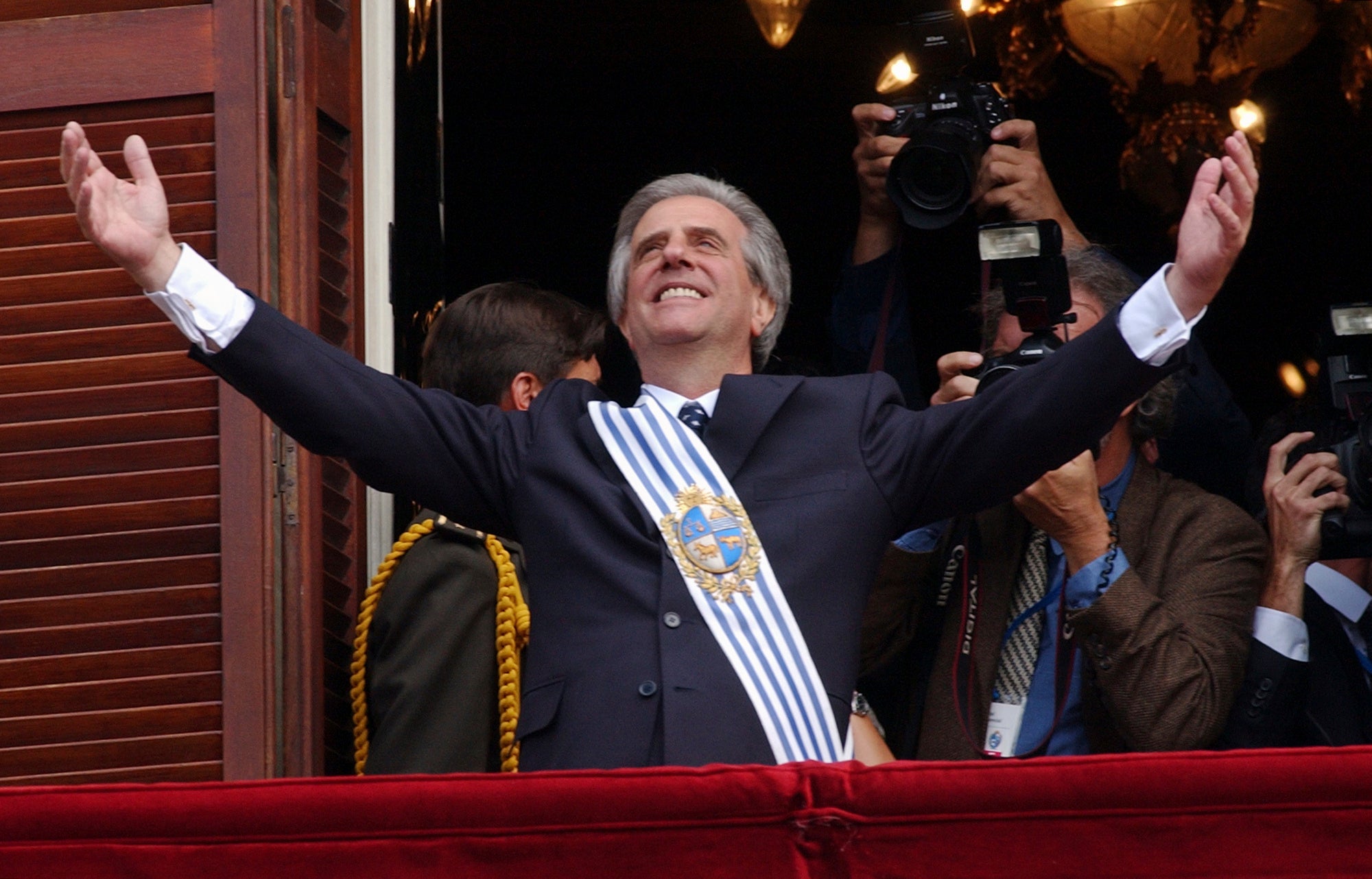Uruguay's 1st socialist president, Tabaré Vázquez, dies
Uruguay’s first socialist president,Tabaré Vásquez has died of cancer

Your support helps us to tell the story
As your White House correspondent, I ask the tough questions and seek the answers that matter.
Your support enables me to be in the room, pressing for transparency and accountability. Without your contributions, we wouldn't have the resources to challenge those in power.
Your donation makes it possible for us to keep doing this important work, keeping you informed every step of the way to the November election

Andrew Feinberg
White House Correspondent
Uruguay s first socialist president,Tabaré Vásquez, a popular figure who was returned to office for a second term, died Sunday of cancer, a disease the physician dedicated much of his life to fighting.
The 80-year-old oncologist announced last year that he had lung cancer His family confirmed that he died on Sunday.
HIs son Álvaro, also a cancer specialist, sent a tweet thanking Uruguayans “for the kindness he received throughout so many years.”
Center-right President Luis Lacalle Pou, a former political opponent, wrote the Vázquez “faced his final battle with courage and serenity. ... He served his country and obtained important achievements based on his efforts...
“The country is in mourning,” he added, declaring three days of honors.
Vazquez shook up Uruguayan politics when he became president for the first time in 2005, peacefully ending 170 years of two-party dominance at the head of a Broad Front coalition of socialists, Christian Democrats, Communists and former guerrillas.
He promised changes that would “shake the roots of the trees.” But he governed as a relatively cautious moderate, avoiding the constitutional changes and polarization that have caused upheaval in other South American nations.
His popularity on leaving office paved the way for the election of his successor, Jose Mujica, a folksy former guerrilla. Uruguay's constitution forbids immediate reelection.
The two were among the leaders who helped the small county of nearly 3.4 million people become widely seen as an example of democracy in the region, calmly assuming and relinquishing power.
The Front held power for 15 years as the country's economy grew and equality initially improved.
But in the second Vázquez administration, the economy softened, crime rose and Vice President Raúl Sendic was forced to resign over corruption allegations. The Front lost power after a runoff in last year's election.
Vázquez had seemed open to that possibility before the vote: “I believe we have to alternate, people, parties. It’s always good to have a fresh mind, with another outlook, another will and another desire to do things.”
As president, he formed part of the “pink wave” of left-leaning governments that swept across Latin America and he quickly reestablished diplomatic relations with Cuba.
But he also managed to maintain good relations with Republican U.S. President George W. Bush, sometimes to the frustration of his own backers.
The tall and trim son of an oil worker, Vázquez was born in the working class La Teja neighborhood of Montevideo and went on to achieve a medical degree.
Vázquez often said that he chose to become an oncologist after his parents and a sister died from cancer, and he continued to practice one day a week during his term as Montevideo mayor and later during his first term as president.
During that first term, he championed some of the world’s strictest tobacco regulations.
Subscribe to Independent Premium to bookmark this article
Want to bookmark your favourite articles and stories to read or reference later? Start your Independent Premium subscription today.